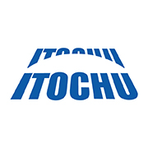Buffett's Bold Bet: A Deep Dive into Berkshire's Japanese Investments
March 18, 2025, 4:16 pm
Warren Buffett is a name synonymous with investing wisdom. The "Oracle of Omaha" has made headlines again, this time with a significant move in Japan. Berkshire Hathaway, his investment vehicle, has increased its stakes in five major Japanese trading houses. This bold maneuver reflects not just Buffett's confidence in Japan's economy but also a strategic pivot in his investment philosophy.
Berkshire Hathaway has raised its holdings in Itochu, Marubeni, Mitsubishi, Mitsui, and Sumitomo. Each stake now hovers between 8.5% and 9.8%. This increase is more than just a number; it signals a long-term commitment to these companies. Buffett has expressed a desire to hold these investments indefinitely. This is not a fleeting romance; it’s a marriage of mutual respect and potential.
The backdrop to this investment is intriguing. Buffett has been shedding U.S. equities, a move that raises eyebrows. In 2024 alone, Berkshire sold over $134 billion worth of stocks, trimming its stakes in giants like Apple and Bank of America. Meanwhile, the cash pile at Berkshire has ballooned to a staggering $334 billion. It’s a classic Buffett strategy: when the U.S. market feels shaky, look elsewhere.
Japan's trading houses, known as "sogo shosha," are unique beasts. They operate across diverse sectors, both domestically and internationally. This diversity mirrors Berkshire's own investment style. The trading houses are not just businesses; they are ecosystems. They thrive on relationships, capital deployment, and strategic investments. Buffett has praised their management and ability to navigate complex markets.
The financials are compelling. At the end of 2024, Berkshire's Japanese holdings were valued at $23.5 billion, with an aggregate cost of $13.8 billion. This means Buffett is sitting on a significant paper profit. The allure of dividends has been a key factor in his attraction to these companies. In a world where yield is hard to find, these trading houses offer a beacon of hope.
Buffett's strategy also involves hedging currency risk. By selling Japanese debt, he can pocket the difference between the dividends from his investments and the bond coupon payments. It’s a financial dance, a balancing act that showcases Buffett's acumen. He’s not just investing; he’s orchestrating a symphony of financial instruments.
The market reacted positively to Berkshire's increased stakes. Shares of the five trading houses rallied, with Itochu and Marubeni leading the charge. A rise of over 4% in a single day is no small feat. It reflects investor confidence, a ripple effect from Buffett's endorsement. When Buffett speaks, markets listen. His name carries weight, and his actions can sway stock prices.
Buffett's journey into Japanese stocks began in 2019. He was initially "confounded" by the opportunities he saw. The decision to invest was not made lightly. It was a calculated risk, a leap into a market that many Western investors overlooked. His visit to Japan in 2023, alongside his successor Greg Abel, underscores the importance of these investments. Meeting with the heads of these firms was not just a courtesy; it was a sign of commitment.
The long-term vision is clear. Buffett wants Berkshire to own these companies forever. This is not just about profits; it’s about building relationships and fostering growth. The Japanese market offers stability and potential that Buffett finds appealing. In a world of uncertainty, Japan stands out as a beacon of opportunity.
As Buffett continues to navigate the complexities of global markets, his focus on Japan may serve as a roadmap for other investors. The lessons are clear: look beyond borders, embrace diversity, and invest in strong management. The world is full of opportunities waiting to be discovered.
In conclusion, Buffett's increased stakes in Japan's largest trading houses is a bold statement. It reflects a strategic pivot in his investment philosophy. As he sells U.S. equities, he is not retreating; he is advancing into new territories. The Japanese market, with its unique trading houses, offers a landscape ripe for exploration. For investors, the message is clear: keep an eye on Japan. The Oracle of Omaha has spoken, and the world is watching.
Berkshire Hathaway has raised its holdings in Itochu, Marubeni, Mitsubishi, Mitsui, and Sumitomo. Each stake now hovers between 8.5% and 9.8%. This increase is more than just a number; it signals a long-term commitment to these companies. Buffett has expressed a desire to hold these investments indefinitely. This is not a fleeting romance; it’s a marriage of mutual respect and potential.
The backdrop to this investment is intriguing. Buffett has been shedding U.S. equities, a move that raises eyebrows. In 2024 alone, Berkshire sold over $134 billion worth of stocks, trimming its stakes in giants like Apple and Bank of America. Meanwhile, the cash pile at Berkshire has ballooned to a staggering $334 billion. It’s a classic Buffett strategy: when the U.S. market feels shaky, look elsewhere.
Japan's trading houses, known as "sogo shosha," are unique beasts. They operate across diverse sectors, both domestically and internationally. This diversity mirrors Berkshire's own investment style. The trading houses are not just businesses; they are ecosystems. They thrive on relationships, capital deployment, and strategic investments. Buffett has praised their management and ability to navigate complex markets.
The financials are compelling. At the end of 2024, Berkshire's Japanese holdings were valued at $23.5 billion, with an aggregate cost of $13.8 billion. This means Buffett is sitting on a significant paper profit. The allure of dividends has been a key factor in his attraction to these companies. In a world where yield is hard to find, these trading houses offer a beacon of hope.
Buffett's strategy also involves hedging currency risk. By selling Japanese debt, he can pocket the difference between the dividends from his investments and the bond coupon payments. It’s a financial dance, a balancing act that showcases Buffett's acumen. He’s not just investing; he’s orchestrating a symphony of financial instruments.
The market reacted positively to Berkshire's increased stakes. Shares of the five trading houses rallied, with Itochu and Marubeni leading the charge. A rise of over 4% in a single day is no small feat. It reflects investor confidence, a ripple effect from Buffett's endorsement. When Buffett speaks, markets listen. His name carries weight, and his actions can sway stock prices.
Buffett's journey into Japanese stocks began in 2019. He was initially "confounded" by the opportunities he saw. The decision to invest was not made lightly. It was a calculated risk, a leap into a market that many Western investors overlooked. His visit to Japan in 2023, alongside his successor Greg Abel, underscores the importance of these investments. Meeting with the heads of these firms was not just a courtesy; it was a sign of commitment.
The long-term vision is clear. Buffett wants Berkshire to own these companies forever. This is not just about profits; it’s about building relationships and fostering growth. The Japanese market offers stability and potential that Buffett finds appealing. In a world of uncertainty, Japan stands out as a beacon of opportunity.
As Buffett continues to navigate the complexities of global markets, his focus on Japan may serve as a roadmap for other investors. The lessons are clear: look beyond borders, embrace diversity, and invest in strong management. The world is full of opportunities waiting to be discovered.
In conclusion, Buffett's increased stakes in Japan's largest trading houses is a bold statement. It reflects a strategic pivot in his investment philosophy. As he sells U.S. equities, he is not retreating; he is advancing into new territories. The Japanese market, with its unique trading houses, offers a landscape ripe for exploration. For investors, the message is clear: keep an eye on Japan. The Oracle of Omaha has spoken, and the world is watching.


